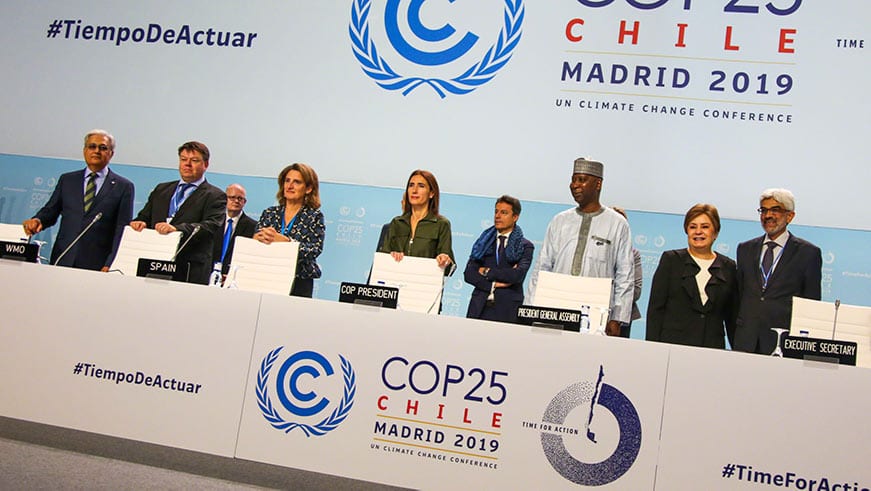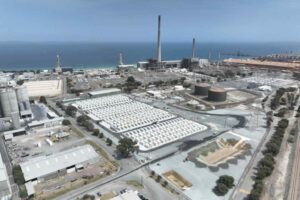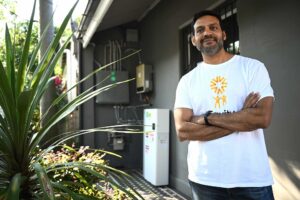There is no bigger show in town than the United Nations climate talks when it comes to climate change.
It has been two years since countries met to discuss the global response to climate change – after the Covid-19 pandemic caused the 2020 talks to be postponed
The next round of talks will be hosted in the Scottish city of Glasgow – held in the Scottish Exhibition and Conference Centre, starting on 31 October, and will run for at least two weeks.
It’s a huge event, with more than 30,000 people expected to descend on Glasgow for the talks, including representatives from governments, media, business groups, and non-governmental organisations and activists, often referred to as “civil society”. They help hold the main players to account.
Alongside the talks, there will be a huge number of events, all looking to shape and influence the outcomes of the negotiations.
What is COP?
Officially, “COP” is the Conference of Parties to the United Nations Framework Agreement on Climate Change (UNFCCC).
The UNFCCC is the overarching treaty that guides international negotiations on climate change, and it is under this treaty that agreements like the Kyoto Protocol and the Paris Agreement have been negotiated.
The Glasgow talks are the 26th ‘COP’ since the UNFCCC first came into force in 1994 (hence why it is referred to as COP26).
Which world leaders are going?
The Glasgow talks are expected to attract a large number of world leaders. With the talks hosted by Glasgow, UK prime minister Boris Johnson will play a lead role.
US President Joe Biden, Canadian PM Justin Trudeau, French President Emmanuel Macron, Turkish President Recep Tayyip Erdogan, Israeli prime minister Naftali Bennett are all expected to attend personally.
Queen Elizabeth was expected to attend the talks but has since pulled out due to health concerns.
High profile campaigners, including Greta Thunberg, David Attenborough, Pope Francis and UN Secretary General António Guterres, are all expected to attend.
Chinese president Xi Jinping and Russian President Vladimir Putin have confirmed that they won’t personally be attending the talks, but both countries will be sending a team of diplomats to negotiate on their behalf.
For Australia, Scott Morrison, Angus Taylor and special envoy for the Great Barrier Reef, Warren Entsch, are expected to attend.

Country Negotiating Blocs
Decisions made during the UN climate talks are made on a consensus basis – in theory, all of the formal decisions made by the conference have been agreed to by every country participating in the talks.
But with almost 200 nations being signatories to the UNFCCC, it would make the negotiations unwieldy to hear the opinion from negotiators representing every individual country when negotiating contentious issues.
To manage this, countries organise themselves into a much smaller number of negotiating blocs, known as ‘party groupings’, which are formed around common characteristics and allow a single spokesperson to speak on behalf of a much wider group, however countries will often belong to multiple blocs.
The prominent party groups are:
- Group of 77 plus China – By far the biggest grouping, the name of this group is a bit of a misnomer. There are, in fact, more than 130 members of the G77, which is mostly made up of developing countries. The special nod to China is not by mistake – China is by far the most powerful and influential member of this group and often guides much of its agenda.
- European Union – Self explanatory – countries that belong to the EU negotiate as a single group.
- The Alliance of Small Island States (AOSIS) – represents countries that are most vulnerable to the impacts of climate change and include members drawn from across the world, including most of the Pacific and Caribbean. Usually, a loud advocate for stronger action.
- Least Developed Countries (LDC) – represent around 50 of the world’s least wealthy countries – and are the least responsible for climate change. Often advocates for stronger financial support for adaptation and capacity-building measures.
- Arab States – represents much of the Middle East, the Arab Group has often sought to preserve the role of fossil fuels. Usually led by Saudi Arabia.
- African Group – also self-explanatory. The Arab Group has often sought to preserve the role of fossil fuels, while the African Group has often called for capacity building support to empower their own response to climate change and sustainable development.
- Umbrella Group – comprises a collection of wealthier countries, including Australia, the United States, Canada and New Zealand. Not known to be leaders in climate action, and have often led calls for developing countries to take on emissions reduction targets.
- Environmental Integrity Group – serves as a bit of counterpoint to the Umbrella Group, made up of South Korea, Switzerland, Mexico, Liechtenstein and Monaco – calling for much stronger action on climate change.
Other groups you’ll hear about at Glasgow
While not formally recognised negotiating blocs, countries will often announce that they have signed on to a common grouping and a commitment to particular policy measures, during the climate talks.
One key group expected to feature in Glasgow is the Powering Past Coal Alliance – a group of 137 countries, cities and organisations committed to accelerating the phase-out of coal fired power stations.
Canada and the UK formed the group at COP23 in 2017. Unsurprisingly, Australia is not a member of this group.
Non-government delegations?
While most of the negotiations will occur between officials representing countries, non-government groups also play a significant role during COPs. These will include business groups, environmental groups, and other advocacy organisations.
Recognised representatives of “civil society” are able to participate in the negotiations, with limited speaking rights to provide reflections on the progress of the negotiations and generally to urge negotiators to do more on particular issues.
Because there are a lot of civil society delegates – they can outnumber official negotiators – they also organise in their own groupings that are officially recognised “constituencies”, including:
- ENGOs – Stands for ‘Environmental Non-Government Organisations’ representing environmental groups, like WWF and Greenpeace.
- BINGOs – represents business groups
- Farmers
- IPOs – representing indigenous peoples
- LGMA – representing local government authorities, including local councils.
- RINGOs – research institutions, like universities.
- TUNGOs – trade union groups
- Women and Gender
- YOUNGs – Youth advocacy groups, like the Australian Youth Climate Coalition
What will they talk about?
The COP26 talks mark an important turning point for global governance for climate change. They are the first meeting since the end of the Kyoto Protocol, and the start of the Paris Agreement.
Updated emissions pledges will be a major feature, with countries expected to announce stronger ‘Nationally Determined Contributions’ (being emissions reduction targets).
As president of COP26, the UK government has outlined the four core aims for the meeting:
- Secure global net-zero by the middle of the century
- Adapt to protect our communities and natural habitats
- Mobilise $100bn in climate finance per year
- Work together to meet the challenges of the climate crisis
We are also likely to see further discussions around a potential potential ‘Loss and Damage’ mechanism to compensate less developed countries for the impacts of climate change.
There will be a range of administrative and technical matters to be dealt with, including taking note of recent scientific advice, finalising the rules of the Paris Agreement, and the rules managing the measurement and verification of emissions data.
This also includes the unresolved issue of the surplus Kyoto Protocol units, which a group of countries – including Australia – have demanded be ‘carried over’ into the Paris Agreement. Those demands were met with opposition from countries who argue that allowing the surplus units to be carried over would undermine the Paris Agreement.
This contentious topic almost derailed the last talks held in Madrid in 2019, and will need to be resolved in Glasgow.
COP26 also represents a trigger point built into the Paris Agreement for countries to announce their 2030 emissions reduction targets, and there will be a huge focus on countries to announce more ambitious goals in Glasgow.
The talks will also deal with a promise that wealthy countries made to provide at least $100 billion in finance annually to developing countries in their response to climate change.
So far, this promise has not been kept, and there will be pressure on richer countries to increase their financial contributions.
RenewEconomy will be reporting daily on the Glasgow talks. You can follow by clicking on the link to Glasgow COP26.







